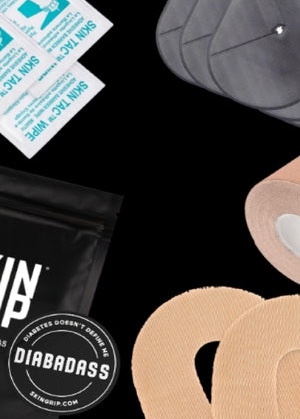 (pyou93 / pixabay)
(pyou93 / pixabay)
A diabetes diagnosis is a shocking experience for many patients. Occasionally, a person who receives a diagnosis may feel unable to accept it. These cases are called diabetes denial.
This reaction is displayed in a variety of ways. Some people may simply refuse to return to the doctor to avoid hearing any more about their condition. Others may accept that they have diabetes but refuse to manage it. Others may downplay its seriousness and do the bare minimum to manage the condition.
For bystanders, watching a loved one refuse to take a proactive role in their treatment can be a source of stress and even strain in a relationship. Encouraging healthy coping and acceptance is often necessary to keep these relationships and patients healthy. While no method of coping is 100% effective, there are some common ways to find help.
Seek Out a Professional
Knowledge is power! Many hospitals and clinics may provide nurse educators and counselors for patients who are newly diagnosed. For patients with diabetes, these healthcare professionals can give one-on-one advice and guidance. In individual counseling sessions, educators can provide literature, answer questions, and explain how to best manage your diabetes.
Many people may be initially unfamiliar with terms like A1C, CGM, or hypoglycemia. The barrage of jargon and medical orders can quickly become overwhelming, so finding a professional who can explain it all can make a big difference. When patients feel they understand their condition and the steps to manage it, making smart healthcare decisions is much easier.
Find a Community
Finding support from other people with diabetes is easier than ever with the advent of social media. Facebook, Instagram, and other platforms can connect patients with other people who can share tips, recipes, books, or a place to vent emotions.
We use our Instagram to show people who live fearless, free lives. Seeing athletes, models, parents, and all kinds of people with the same condition shows that people are not defined by their medical conditions. With the right tape for diabetic sensors, people with Type 1 diabetes can still kayak, climb, run, and do every activity under the sun. How’s that for inspiration? (We also run promotions and announce sales through Instagram, so it doesn’t hurt to follow us for great deals on our adhesive tape and patches for CGM’s and insulin pumps.)
If social media isn’t your thing, you may be able to find a diabetes support group near you. These groups are a great place to find other live people who can help you and your loved ones understand diabetes, its management, and how to cope with it over a lifetime. Searching the web or asking your healthcare provider may put you in touch with live support groups such as these.
Get Educated
Once you have spoken to professionals or others, it may be time to do some personal research. Finding books, videos, or other resources can help expand your understanding. For loved ones, doing this research can help them understand the changes people with diabetes may experience and how to best support them during their adjustment to a newly diagnosed condition. These resources can also help guide individuals to questions and concerns that they may not have time to cover during doctor’s visits or counseling sessions. This outside preparation will allow you to guide the focus of your medical appointments and tailor them to best help you.
Work on Mental Health
“Health” encompasses so much more than numbers on a chart. Mental and emotional health is essential to our overall well-being, especially when managing chronic conditions like Type 1 and Type 2 diabetes. People with diabetes are approximately twice as likely to experience clinical depression. The commingling of these conditions can magnify the difficulty of managing both. Learning to pay attention to and respect mental and emotional health is a key component of managing both diabetes and depression. Combinations of medication and therapy can help patients take important steps in managing their health, including acknowledging their diagnosis and the lifestyle changes that need to occur to address it.
Communicate
For patients and the people in their life, communication is an important way to answer questions and resolve conflict. Patients may be afraid of the changes their diagnosis may engender. These fears may extend to financial anxiety, stress about the future, fear of changing their lifestyle, or any number of concerns. The friends and loved ones around a person diagnosed with diabetes may share these concerns. They may worry that a person they love is not taking their health seriously. Talking through these feelings offers a catharsis that allows both parties to vocalize their fears and work through them together. Communicating openly can resolve relationship strain and stress about the future.
Make a Change. (No Matter How Small)
The worst decision one can make after receiving a diagnosis is to ignore it. Particularly in the case of diabetes, ignoring the condition can result in disastrous damage to the body, which could be entirely averted with proper management. Unfortunately, putting our heads in the sand is a common response to stressful information. For people who choose to ignore their condition completely, it may be helpful to prompt a healthcare provider to explain what will happen if they choose to ignore diabetes completely. This “worst case scenario” can be sobering to anyone!
Convincing someone to make a single, small change can help them gain confidence in their agency and ability to improve their daily living. This change can be as small as taking one medication, eliminating soft drinks, or going for a daily walk. Any progress is still progress!
Be patient with your loved one who is grappling with their new diagnosis. As you show that you’re there for them no matter what, you’ll create a safe space for them to navigate their diabetes with greater hope and confidence.


















